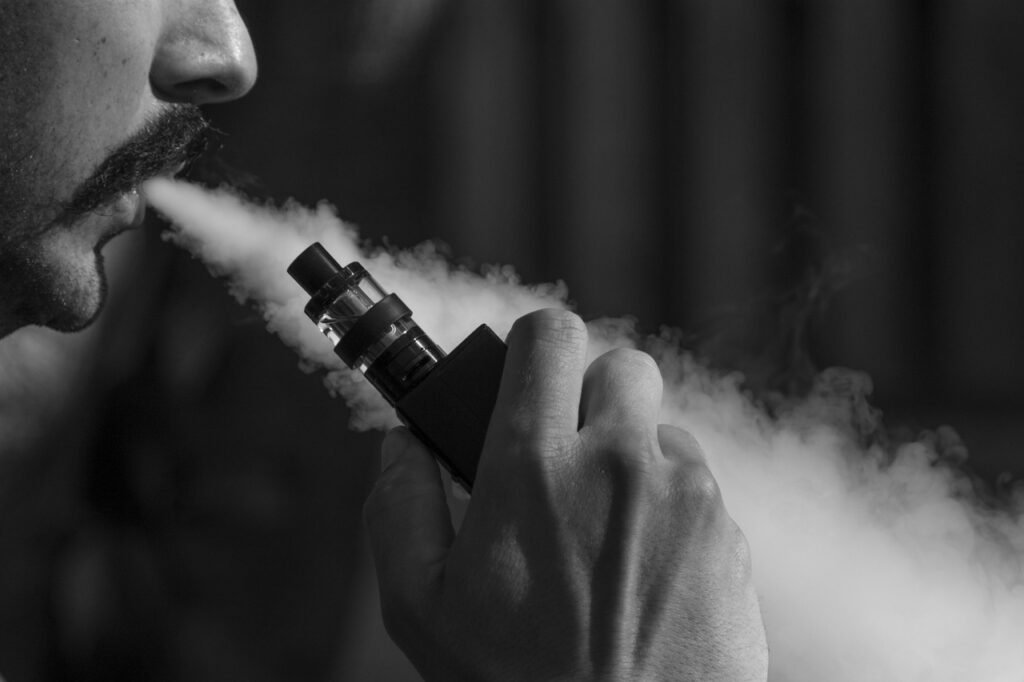The sale of disposable vapes is now illegal across the United Kingdom, marking a decisive shift in the country’s approach to vaping, youth health, and environmental protection. As of 1 June 2025, shops and online retailers are banned from selling single-use vapes, with the government aiming to tackle both the alarming rise in youth vaping and the mounting waste crisis caused by these products.
Why Has the UK Banned Disposable Vapes?
Disposable vapes, also known as single-use vapes, surged in popularity over recent years. Their bright packaging, sweet flavours, and low prices made them especially attractive to young people. According to government figures, the use of vapes in the UK increased by more than 400% between 2012 and 2023, with nearly one in four vapers opting for disposable models by 2024.
However, the environmental impact of these products has become impossible to ignore. In 2024, an estimated five million disposable vapes were thrown away each week in the UK, contributing to litter, landfill, and pollution. These devices contain lithium batteries and plastics that are rarely recycled, with many ending up in general waste or scattered across parks and pavements. Material Focus, an environmental group, reported that the lithium discarded in single-use vapes each year could power 5,000 electric vehicles.
The government’s ban is also a response to growing concerns about the health risks to children and young people. Despite restrictions on selling vapes to under-18s, disposable vapes have been linked to a sharp increase in youth vaping. NHS data from 2024 showed that around 25% of 11 to 15-year-olds had tried vaping, and nearly 10% used vapes regularly. The government and health officials argue that the ban will help prevent a new generation from becoming addicted to nicotine.
What Does the Ban Cover?
The new law makes it illegal for businesses in England, Scotland, Wales, and Northern Ireland to sell or supply single-use vapes, whether they contain nicotine or not. The ban applies to both physical shops and online retailers. Only reusable vapes—those that can be refilled and recharged—are still permitted for sale.
Retailers caught breaking the law face a £200 fine for a first offence. Repeat offenders risk unlimited fines or even imprisonment. Trading Standards officers have the authority to seize illegal products from shops and markets.
Importantly, the ban targets the sale and supply of disposable vapes, not their possession. Individuals who already own disposable vapes will not face penalties, but retailers must arrange for the recycling or safe disposal of any remaining stock.
Early Impact: Changing Habits and Industry Response
Even before the ban took effect, there were signs of changing consumer behaviour. Research from Action on Smoking and Health (ASH) showed that the proportion of vapers using disposables fell from 30% in 2024 to 24% in 2025. Among 18 to 24-year-olds, usage dropped from 52% to 40% over the same period. The anticipation of the ban drove many users to switch to refillable devices, and some retailers began phasing out disposables ahead of the deadline.
Major vape manufacturers have responded by developing new reusable products and shifting marketing strategies. Brands like ElfBar and Lost Mary have launched refillable options in anticipation of the legislation. However, some retailers warn that customers still prefer the convenience and variety of disposable vapes, raising concerns about the potential for an illegal market.
Will the Ban Reduce Youth Vaping and Waste?
The government hopes the ban will have a significant impact on both public health and the environment. Environment Secretary Steve Reed described single-use vapes as products that “get kids hooked on nicotine and blight our high streets,” emphasising the need to protect children and clean up communities.
Environmental groups such as WRAP and Material Focus have welcomed the ban, highlighting the reduction in plastic and electronic waste and the risks posed by discarded batteries. Discarded vapes are not only unsightly but also pose hazards to wildlife and can cause fires in waste facilities.
However, some experts are cautious about the ban’s likely effectiveness. Hazel Cheeseman, chief executive of ASH, argues that while the ban is a positive step, reusable vapes are often just as appealing to young people due to their similar packaging, price, and flavours. There is also concern that the ban could drive the sale of illegal or unregulated products, which may pose even greater health risks.
What’s Next for Vaping Regulation in the UK?
The disposable vape ban is part of a broader government strategy to reduce smoking and vaping rates among young people. The Tobacco and Vapes Bill, currently progressing through Parliament, aims to further restrict advertising, sponsorship, packaging, and flavours of vaping products. From October 2026, a new vaping duty will be introduced, adding a tax of £2.20 per 10 ml of vaping liquid, while tobacco duty will also rise to encourage smokers to switch to less harmful alternatives.
Retailers and health professionals are now watching closely to see how the market adapts. The government has pledged tough enforcement against illegal sales and is working to improve recycling and disposal options for vape products.
Conclusion
The UK’s ban on disposable vapes marks a major milestone in efforts to protect young people and the environment. While early data suggests the law is already changing habits, its long-term success will depend on effective enforcement, public awareness, and continued action to address the root causes of youth vaping and electronic waste. As the country adjusts to this new reality, the debate over how best to balance harm reduction, public health, and environmental sustainability is set to continue.
To read more click here

